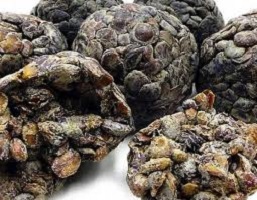Is Too Much Pepper Bad for You? Health Effects
Is Too Much Pepper Bad for You? Effects of Too Much Eating of Peppers

Too much pepper, in general, can induce stomach distress. Excessive consumption may cause heartburn or indigestion.
The number of established health advantages of hot peppers is growing at an alarming rate, mirroring the increased popularity of eating spicy foods in various ways. Capsaicin, a substance, is responsible for heat and health advantages.
Table of Contents
What is Pepper?
pepper is an essential component. The inclusion of pepper in a meal enhances its flavor, whereas its lack may make the meal taste bland, even if other spices were utilized.
Many individuals use just enough pepper to flavor their cuisine, but others prefer their foods to be particularly hot and use a lot of pepper in their cooking.
Peppers are one of the healthiest foods in terms of nutrients, thus having them in your diet is critical. Capsaicin is a component of pepper that gives it its hot and spicy flavor.
Culinary Uses
In grocery shops, marketplaces, and online, you can find ground pepper or whole peppercorns in a jar with a grinder. There are various methods to incorporate black pepper into your diet.
Some methods include:
- Add pepper to recipes to add flavor and spice to meats, seafood, vegetables, salad dressings, soups, stir-fries, pasta, and other dishes.
- For a spicy kick, add a dab of pepper to scrambled eggs, avocado toast, fruit, and dipping sauces.
- To make a marinade with the spice, whisk together 1/4 cup (60 mL) olive oil, 1/2 teaspoon black pepper, 1/2 teaspoon salt, and a pinch of your choice seasonings.
- For a tasty dinner, brush this marinade over fish, pork, or vegetables before cooking.
Health Benefits of Pepper ~ Is Too Much Pepper Bad for You
Calcium, protein, potassium, magnesium, carbohydrate, and vitamins C and B6 are all found in pepper. Eating a pinch of pepper every day may provide more health benefits than you realize.
Benefits to the Digestive System: It accomplishes this by lowering the acidity in the digestive tract, which causes ulcers. It also promotes stomach fluids and saliva production, which aids digestion.
Pepper powder contains trace amounts of anti-oxidants and other substances that can help with digestive difficulties such as healing an upset stomach, lowering intestinal gas, curing diarrhea, and functioning as a natural cramp cure.
Promotes Heart Health: It also helps the vascular system and protects heart disease by decreasing blood serum cholesterol and lipid deposits, reversing excessive blood clotting. It also dilates blood arteries, which improves blood flow.
Migraines are reduced: When your brain focused on the new damage, the original pain simply vanished. This is what happens when you eat hot peppers and get a migraine.
Your body grows acclimated to the migraine, reducing the overall sensation of discomfort.
Joint Pain Relief: Capsaicin from peppers has great pain-relieving qualities. Pain receptors eventually exhaust themselves by draining the body’s reserves.
As a result, capsaicin functions as a pain reliever. It works well for shingles, HIV neuropathy, and other sorts of pain.
Improves Metabolism and Aids in Weight Loss: Spicy peppers increase metabolic rate by activating thermogenic processes in our bodies, which produce heat.
This process consumes energy and hence burns more calories. Furthermore, eating hot peppers for breakfast suppresses hunger for the rest of the day, which aids in weight loss.
Psoriasis Treatment: Psoriasis is an irritating skin disorder that causes unsightly skin patches. Capsaicin cream reduces the number of cells that replicate and aids in the reversal of auto-immune skin lesions.
Lowers Cancer Risk: Capsaicin in pepper meat is being researched as a cancer fighter because it has anti-oxidant and anti-inflammatory qualities. It inhibits the growth of prostate cancer cells while causing no harm to normal cells.
Other Pepper benefits include:
- Large amounts of peppers have also been shown in studies to be effective against breast, pancreatic, and bladder cancer
- Hot peppers are high in beta carotene and antioxidants, which boost your immune system and help you fight colds and the flu.
- Pepper consumption combats 16 fungal strains by decreasing fungal infections.
- Eating hot pepper powder helps to keep your significant other attracted to you by acting as a disinfectant to the air you breathe out and improving the odor of your breath.
- Hot peppers can help prevent allergies and allergy symptoms due to the anti-inflammatory properties of capsaicin.
Health Effects of Eating Too Much Pepper
Above are some of the benefits of eating pepper. But it should be noted that these benefits come with moderate consumption of pepper. So, what are the health effects of eating too much pepper?
Side Effects of Pepper ~ Is having too much pepper bad for your health?
These are some of the advantages of pepper consumption. However, it should be emphasized that these advantages are only available with moderate pepper use. So, what are the health effects of eating too much pepper?
The effects of eating too much include:
Problems with digestion: Eating too much pepper can cause digestive issues. When you digest pepper, the capsaicin in it reacts with the acids in your stomach, which is terrible if you have an ulcer because it will just make the discomfort worse.
Asthmatics may get an attack if they consume too much pepper: This occurs when the pepper obstructs the airway, perhaps triggering an attack.
Males may experience infertility: This is due to the presence of piperine chemicals in pepper, which has been shown to harm sperm cells.
It accomplishes this by boosting the activity of free radicals in the vicinity of the sperm storage region.
Mouth issues: Another side effect of excessive pepper consumption is how it affects the mouth. It may cause mucous membrane damage and even burn the taste buds.
Eating too much pepper is also unpleasant since the mouth becomes extremely hot for an extended period of time. It can also make your eyes tear up and your nose run in some situations.
Feelings of burning in the throat: According to some research, consuming significant doses of black pepper may cause unpleasant side effects such as throat burning. This is one of the most visible pepper side effects.
Other potential health benefits of eating too much pepper include:
- A Runny Nose,
- Excessive Sweating,
- Watery Eyes.
- Stomach Ache
- Unpleasant And
- Scorching Diarrhoea.
FAQS on Is Too Much Pepper Bad for Your Health?
Is too much pepper bad for you (Reddit)?
Yes. A huge enough dose of pepper will cause your stomach to rupture and explode.
Is too much cayenne pepper bad for you?
Cayenne peppers are safe to eat and make a tasty, spicy complement to a variety of recipes. However, eating too many can result in unpleasant side effects such as an upset stomach or heartburn.
If you are sensitive to spices, you may have an unpleasant burning feeling in your mouth.
Is too much white pepper bad for you?
When eaten in large quantities by mouth, it is POSSIBLY SAFE. Conditions can cause bleeding:
Piperine, a substance found in white pepper, may inhibit blood coagulation. In principle, ingesting more white pepper than what is found in food may raise the risk of bleeding in those with bleeding disorders.
Is too much bell pepper bad for you?
Bell peppers have no negative health consequences when consumed in moderation. They may, however, cause allergies in some persons.
Is too much lemon pepper bad for you?
Although lemon pepper can be a good salt substitute, many kinds of lemon pepper include high levels of sodium
Is too much red pepper bad for you? is too much hot pepper bad for you?
However, too much hot pepper might cause stomach pain, nausea, vomiting, diarrhea, or a burning sensation in your gut. Even children are ending up in the ER as a result of excessive snacking.
Is too much ground black pepper bad for you? Is too much pepper bad for your health?
While black pepper does not have the same harmful impact on your health as salt, eating too much might be uncomfortable. “Generally, too much black pepper might cause stomach trouble,” explains Culbertson. “Overdoing it may result in heartburn or indigestion.”
Is using too much pepper bad for you?
While pepper does not have the same harmful impact on your health as salt, eating too much might be uncomfortable. “Generally, too much black pepper might cause stomach trouble,” explains Culbertson. “Overdoing it may result in heartburn or indigestion.”
How much black pepper per day?
There is no harm in adding it to your diet but do so in moderation. Consume no more than 1-2 teaspoons of black pepper each day. Excess consumption can have a number of negative consequences.
Is white pepper bad for you?
When administered orally: When consumed at proportions found in meals, white pepper is LIKELY SAFE. When used correctly as medicine, white pepper is POSSIBLY SAFE.
White pepper may induce an allergic reaction in certain persons, but this is uncommon. White pepper may leave a scorching flavor.
Is black pepper bad for your heart?
It is also the primary component responsible for black pepper’s health-promoting properties.
Piperine is a form of antioxidant that aids in the prevention of chronic illnesses such as atherosclerosis, cardiovascular disease, and neurological problems.
Is black pepper bad for gastritis?
Which spices should you avoid if you have gastritis? All varieties of pepper (black, red, cayenne, or chili pepper), garlic, mustard, and nutmeg should be avoided if you have gastritis.
Gastritis patients should also avoid tomato products, onions, and sweets.
Is black pepper bad for your kidneys?
If you have calcium oxalate kidney stones, your doctor may advise you to decrease your intake of foods high in oxalates, such as beets, black pepper, black tea, chocolate, almonds, potatoes, rhubarb, soy products, and spinach.
Is pepper bad for you?
Although pepper is generally considered safe in cooking and as a supplement, it has been shown to greatly accelerate the absorption of several medicines and should be taken with caution in these circumstances.
For most people, though, spicing up your diet with black pepper is a simple way to add flavor to your meals while reaping some health advantages.
Does black pepper cause gas?
Flatulence is relieved.
Black pepper stimulates the release of hydrochloric acid, which not only aids in digestion but also breaks up and expels gas trapped in the intestines. To relieve gas and colicky pain, add half a teaspoon in lukewarm water.
Why is pepper not good for you?
Conditions can cause bleeding: Piperine, a molecule found in black pepper, may inhibit blood coagulation.
In principle, ingesting more black pepper than what is found in food may raise the risk of bleeding in those with bleeding problems. Diabetes: Blood sugar levels may be affected by black pepper
What happens if we eat pepper daily?
There is no harm in adding it to your diet but do so in moderation. Consume no more than 1-2 teaspoons of black pepper each day. Excess consumption can have a number of negative consequences.
What are the side effects of pepper?
Side effects can include skin irritation and itching. Capsicum can also be very irritating to the eyes, nose, and throat. Don’t use capsicum on sensitive skin or near the eyes. When used in the nose: Capsicum is possibly safe.
What does pepper do in the body?
Pepper is an antioxidant that, among other things, has anti-inflammatory and antibacterial properties. It may help improve brain function and raise healthy cholesterol levels
How long does pepper stay in your body?
Water-rich vegetables, like lettuce, celery, watercress, asparagus, cucumber, peppers, tomatoes, and radishes, are digested in 30-40 minutes. Cooked cruciferous and leafy vegetables including kale, Brussel sprouts, broccoli, cauliflower, and bok choy digest take about 40-50 minutes.
Is pepper good for your stomach?
Pepper stimulates hydrochloric acid in the stomach, allowing you to digest and absorb your meal more effectively. It also possesses carminative characteristics, which aid in the reduction of discomfort and gas buildup in the intestines.
Is pepper good for high blood pressure?
Consuming spicy dishes made from capsaicin-rich peppers has been shown to help decrease blood pressure.
According to statistics, persons who eat spicy food on a regular basis had a 14% lower risk of death, diabetes, and cancer than those who eat it less than once a week.
Which pepper is good for health?
Black pepper, also known as the king of spices has a load of health Black pepper, popularly known as the king of spices, has numerous health benefits, one of which is that it aids in weight loss.
It is also thought to assist digestion and to help prevent cancer by cleansing the body.
Is pepper good for weight loss?
Pepper is also high in good fats and fiber, which aid in weight loss. Spicy cuisine is well-known for its ability to aid in weight loss. Spicy foods naturally increase your metabolism, resulting in fat loss.
Does pepper cause inflammation?
The nightshade family includes eggplants, peppers, tomatoes, and potatoes. These veggies contain solanine, a substance that some think aggravates arthritis pain and inflammation.
Is pepper good for your heart?
“Hot peppers, as well as green and red peppers, can lower heart disease and death from heart disease,” says Dr. Fairweather. Anti-inflammatory actions of capsaicin
Is pepper anti-inflammatory?
Pepper has long been prized for its flavor as well as its antibacterial, antioxidant, and anti-inflammatory properties.
Its chemical components, particularly piperine, have been found in studies to be useful in the early acute inflammatory process.
Does pepper speed up metabolism?
Pepper contains the alkaloid piperine, which is known to increase metabolism. It aids in the extraction of minerals from food, and the phytonutrients found in peppers are used to break down fat in the body
Do hot peppers clear arteries?
Capsaicin has also been lauded for its ability to clear clogged arteries and reduce blood pressure.
Conclusion
Pepper is a widely used spice in a number of recipes. People from societies who survived and thrived due to the use of diverse spices passed along spicy recipes and taste buds demanding more zing in meals to their descendants.
Even though we now refrigerate our food, adding hot peppers, hot sauces, and hot powders to it still keep us safe from food poisoning.
If you have eaten too much pepper and are looking for a way to cool your mouth, rather than drinking water, which may aggravate the issue, drink milk or eat a banana, which will relieve the discomfort in your mouth.


